Will voters stick with another four years of sell-offs and the resulting inflation?

On 25 March, voters will head to the polls in NSW. From Broken Hill to Byron Bay, Bega to Brewarrina, schools, church halls and council chambers will break out the democracy sausages and welcome voters who will determine who runs the state for the next four years.
For PSA/CPSU NSW members, this election is vital. For the past 12 years, the Liberal-National Coalition’s four Premiers have presided over a multi-billion-dollar sell-off of government assets. In some cases, state assets and the right to provide government services have even been given away.
In addition, most members working for the State Government have had their wage rises capped at 2.5 per cent. In recent years, as inflation has increased, this has meant every pay packet these members receive has a lower purchasing power than the one they were given two weeks earlier. In 2022, when an increase of up to three per cent was grudgingly awarded, inflation was 7.8 per cent for the year: the highest since 1990.
It is little wonder opinion polls taken in the lead-up to the election have all pointed to the cost of living being the foremost issue in voters’ minds. In the case of Public Sector workers, this worry is exacerbated by the fact wages are artificially suppressed.
There are many PSA/CPSU NSW members in insecure employment: in most cases for years. For these members, getting loans and access to other financial services can be tough. An employment model that helps no-one, this results in high staff turnover and a loss of institutional knowledge. Staff in insecure roles are less likely to stand up to bullying and can be cowed into avoiding asking for pay increases.
For many PSA/CPSU NSW members, 25 March gives them an opportunity denied to most Australian workers: they have the chance to vote for their boss.
Privatisation Hurts Everyone
Much of the state’s extraordinary increase in the cost of living is fuelled by privatised government assets and services. Throw in disruption from the COVID-19 pandemic and it is little wonder prices are up nearly eight per cent.
“Naturally we are determined to fight privatisation on behalf of our members whose jobs are at risk,” said PSA/CPSU NSW General Secretary Stewart Little. “But this is a bigger fight than just that.
At stake is the ability for people in NSW to keep up with the cost of living.
“Privatisation hurts everyone. It hurts road users being funnelled into an ever-increasing network of toll roads, making people second guess every switch of a light or gas burner.
“An underfunded TAFE system means they are being pushing instead into private colleges that offer inferior courses at inflated prices.”
Few issues hit the people of NSW as hard as privatisation.
The state’s electricity and port systems – vital infrastructure – are in private hands. The Land and Property Information service, a profit-making service that put money back into government coffers for decades, is now part of a superannuation fund’s portfolio.
In recent years, we have seen a new private goal open, a surge in toll roads, complete with eye-watering price increases that often surpass the consumer price index growth, and a private light rail system running slower than the government buses it replaced.
A TAFE campus in Scone that perfectly fit the local economy was flogged off to a racing organisation, just one part of a systematic dismantling of public vocational training in favour of private colleges that too often let down the future jobseekers of NSW.
In many cases, the companies that win the contracts to run these vital services are not even domiciled in Australia. Serco, for example, is based in the United Kingdom. Taxpayer dollars sent its way are not returned to Australia. According to The Canberra Times, Serco paid just $11.1 million in tax in 2017-18 despite earning $968.1 million from multiple government contracts.

Parklea Correctional Centre operated by MTC
A political gripe for many people is that the major parties in Australia often sing from the same song sheet, with little difference between the parties. With privatisation, however, the gulf between the NSW contenders is wide and voters concerned about privatisation face a stark choice.
Opposition Leader Chris Minns has told the PSA/CPSU NSW his party is opposed to selling off more state assets. Conceding his party has, in the past, been complicit in privatisation, including Parklea Prison and some electricity infrastructure, Mr Minns has ruled it out for any government he leads. He has even looked at legislation preventing future state government sell-offs.
“We welcome Mr Minns’s assurances his government will stem the flow of state assets to the private sector,” said Mr Little. “We have seen countless times the damage sell-offs have done to our state.
“But we would like to see, from all parties, a commitment to repair the damage.
“When the contract to run Parklea Gaol is up, for example, we want to see Corrective Services NSW become the successful bidder.
“We want to see a government-run service for people with disability. We want to see TAFE campuses returned to the people of NSW.
“Too much damage has been done for us to be happy with the State Government simply saying no more sell-offs but maintaining the status quo. We have years of damage to repair.”
In contrast, Premier Dominic Perrottet is an unabashed fan of the private sector running as many state functions as possible. However, he is not enough of a fan to actually call it “privatisation”, instead using the cuddly euphemism “asset recycling”.
When asked about the privatisation agenda on a leadership debate broadcast on AM station 2GB, Mr Perrottet tied infrastructure development in NSW to the continuation of the Liberal National Coalition’s sell-off agenda.
PSA/CPSU NSW members in areas such as Service NSW, Forestry Corp, Sydney Water and SafeWork, as well as General Assistants in the state’s schools, would be in the State Government’s sights if Dominic Perrottet remains Premier.
“The Liberal Party is always looking for a way for the private sector to take on additional roles, even if it means increasing the prices of services to the people of NSW,” said Mr Little. “It is in their DNA.”
From the cross benches, the Greens and the Shooters, Fishers and Farmers have joined the Labor Party in opposing further privatisations in NSW.
The Wages Policy
A clumsy instrument when it was introduced in 2011, the wage cap restricts public sector salary increases to up to 2.5 per cent a year. This is regardless of inflation at the time, or productivity increases or any increase in workload.
Workers in the Public Sector are being left behind as inflation bites and wages flatline. They simply are not keeping up with the rising cost of living.
The 2.5 per cent increase was ignored in 2020, when the State Government attempted to freeze wages. The Government wanted wages to stagnate as part of its measures to cope with the COVID-19 disruption to its economy.
The PSA and other Public Sector unions opposed this move, taking the State Government to the Industrial Relations Commission (IRC).
Eventually the IRC handed Public Sector workers a 0.3 per cent pay increase. Last budget, the State Government awarded a 3.5 per cent increase, which included a superannuation increase mandated by the Commonwealth Government. This was in the face of an inflation rate that was hovering between seven and eight per cent, so in effect Public Sector employees were on the receiving end of a substantial pay cut in real terms.
Should the Perrottet Government be returned in March, a pay increase of up to 3.5 per cent has been mentioned, but not promised for July 2023. This will be followed by a resumption of the limit of up to 2.5 per cent in subsequent years.
Once again, there is a difference between what the two major parties are offering voters.
At the 2022 PSA/CPSU NSW Annual Conference, NSW Labor Leader Chris Minns said the wage cap would be abolished if his party won the 2023 election. The Liberal National Coalition has no plans to repeal the wage cap, although a 3.5 per cent increase, including super, has been legislated for this July if undisclosed productivity gains are met.
The Greens have called for an end to the wage cap. Even Wagga Wagga’s conservative independent MP Joe McGirr has said it needs to go.
The wage cap comes at a time when wages in other industries have been inflated by staff shortages and lower rates of immigration. According to The Australian Financial Review, graduates in early 2023 were commanding entrance salaries nearly nine per cent higher than those in the previous year.
“We are seeing people leave the Public Sector all over the state,” said Mr Little. “The talented people the NSW Public Sector relies on are not going to stay in their roles if their purchasing power drops every time inflation figures are announced.
“Do we want the best people for the job? If so, we need to set wages to attract the best talent.”

Land titles privatised in 2017 on a 35-year lease for $2.6 billion.
Insecure Work
Cost of living pressures are even more intense if you have no idea if you will have a job at the end of the year. Yet that is the reality for thousands of Public Sector workers throughout NSW. More than half the support roles in schools are insecure, renewed every year once student enrolments are worked out.
For these members, borrowing for a home or car loan is that much harder. The end of the year is characterised by worry: will there be a job available next year?
Thanks to intensive lobbying by the PSA, the parties are in agreement that the NSW Public Sector is too beholden to insecure work. Schools in particular have kept workers in insecure positions, renewed annually for years. The Coalition has promised to make at least 4000 of these workers permanent, while Labor wants to move at least 5000 from insecure positions.
“However, more needs to be done,” said Assistant General Secretary Troy Wright. “Underfunding TAFE means the vocational training system is particularly dependent on insecure labour. And more than half our members in universities are not in permanent roles.
“Whoever wins the election in March needs to amend this.”

Opposition Leader Chris Minns
The Environment
Despite Treasurer Matt Kean’s welcome moves to salvage his party’s image as environmental vandals, there is still opposition in government ranks to Labor’s plans for a large national park on the Mid North Coast to halt the tragic slide into extinction of the state’s koala population.
“From John Barilaro to Chris Gulaptis to Gurmesh Singh, the National Party has traditionally been full of MPs who simply see koalas as an impediment to their developer mates,” said Mr Wright. “Regardless of what Matt Kean tells his North Shore voters, his party is still in Coalition with a party riddled with people obsessed with bulldozing wilderness.”
Your Decision
“Your union will never tell you how to vote,” said Mr Little. “All we ask is that our members look at the issues that are important to them and demand to know from their candidates where they stand.
“Remember, there are also 21 positions up for re-election in the upper house and the cross bench in that chamber will have a big say on the future direction of NSW.
“The cost of living is hurting everyone in the state, our members included. We need someone in Macquarie Street to take our issues seriously.
“Our members have a unique opportunity: they can vote in their boss. Their careers depend on whose smiling face adorns the front pages of the Sunday tabloids on 26 March.
“We need our members to think hard about how they fill out their ballot paper.”

Premier Dominic Perrottet

Bernadette McMahon, Housing
The Opposition’s Shadow Housing Minister, Rose Jackson, wants to create a department combining the current roles of the Community and Justice Housing, Land and Housing Corporation and the Aboriginal Housing Office. Unlike the current state government, which has placed an emphasis on social housing by non-government providers, Labor has promised more public housing will be built and administered by the Government.
Labor has also promised more funding for “wrap-around services”, which are the administrative functions that enable people to maintain tenancies. This includes services such as mental health support and local community organisations.
Ms Jackson has also promised to meet with the PSA on a regular basis.
“A new government would mean better service for the people who require help with housing,” said PSA Housing Departmental Committee Chair Bernadette McMahon. “It means the maintenance of public housing will be performed better and more efficiently.
“The Department does more than just house people, it looks after their overall wellbeing. We need it to return to that role.
“There are tens of thousands of people looking for housing, while in areas such as southwest Sydney have more than 10 per cent of households experiencing some sort of housing stress, including soaring rents, overcrowding and homelessness.”

Janice Hartmann, Service NSW
“The Liberals and Nationals really haven’t left a lot to privatise, so it would be naïve to assume outsourcing Service NSW is not a possibility,” said PSA Delegate Janice Hartmann, who works at the agency. “Their history proves they have a penchant for selling off assets.
“We’ve already seen companies such as Serco taking on functions like driver licensing in Canada. I do worry they will do the same with parts of Service NSW and I worry more about the consequences.”
Ms Hartmann believes selling off Service NSW puts at risk data about the people of the state.
“We are privy to lots of private customer information,” she said. “It really is concerning that our valuable data could end up being held by a private organisation that will always be looking to boost profits by cost-cutting.”
She said Service NSW, which marks 10 years of operation this year, has helped the people of the state.
“Service NSW belongs to us, the people of NSW. It provides valuable and vital services to all of NSW, no matter whether you’re in a regional area or the city, and it has proven for the last 10 years to do so very efficiently. I can’t see how the private sector could match what we’ve shown we are the best at doing.
“It’s a no-brainer for me, Service NSW should never be privatised.”

Ben Owers, National Parks and Wildlife Service
“The koala is listed as an endangered species in NSW, which means it is at risk of becoming extinct very soon,” said National Parks and Wildlife Service (NPWS) Ranger Ben Owers. “There is a whole range of threats to the species’ survival in NSW, but habitat loss is among the key ones.
“Creating the Great Koala National Park in Northern NSW and also new National Parks around disease-free populations in South West Sydney will preserve these areas of koala habitat into the future.
“Only Labor and the Greens have committed to expanding our National Parks. Nothing has been announced that I am aware of from the Coalition.
“After 12 years of Coalition government, there have been major cuts to NPWS staffing levels and many, many years of experience and expertise have left the agency. In the past three years, as a result of the PSA’s advocacy after the Bushfires and post-COVID economic stimulus, new temporary positions have been put on in NPWS to make up for the staff lost due to redundancies and restructures.
“While the Government talks about there being more staff in NPWS than any time recently, there is also an unprecedented level of temporary and insecure work within the NPWS. The PSA’s estimate is that over a quarter of the current workforce is in temporary or insecure work, with most contracts finishing up just after the state election.
“Labor’s recent announcement of $80 million to undertake this assessment and community consultation is an important step in getting things right and making sure that only land that is important is included in any new National Park.
“The Government has recently announced 250 permanent roles, but these roles won’t start until after the election, and will still result in an overall reduction in staff numbers, given the number of temporary staff about to finish up.
“It’s extremely important that any new National Park is properly funded and resourced. There is no point increasing the area that NPWS manages without having extra staff to do the important work to protect these parks.”

Jason Charlton, Corrective Services
The Labor Party under Chris Minns has promised to end the privatisation of Corrective Services, said Jason Charlton, who works in a former target for outsourcing, the Court Escort Security Unit.
“We welcome this move, and hope, if elected, they can back it up by bringing gaols such as Parklea, Junee and Clarence into the public sector,” he said. “The current government, however, has not ruled out privatisation. Staff in private facilities earn less, staffing levels are lower and conditions for inmates and Officers more dangerous.”

Michael Burrell, General Assistant
“We love our schools,” said Michael Burrell, a General Assistant (GA) at Blacktown Boys High School. But he is worried that the conditions GAs work under will deplete the ranks of this vital occupation.
“The way things are going, a lot of GAs are of retirement age, schools can’t attract new GAs and not enough of us are in permanent roles.”
Mr Burrell said the PSA in the past stopped the privatisation of the role, but said it is always a threat under the Liberal-National Coalition Government.
“Thank God we have the union on our side over this and other issues,” he said, adding there is already privatisation by stealth. For example, functions such as lawnmowing is outsourced in some schools because GAs are already stretched by the limited number of hours they can work. This is due to a funding model based solely on student numbers and not on the size of the school property itself.
He said the Department announced a review of the funding model more than a year ago, with still no conclusion.
Mr Burrell said scrapping the wage cap, a policy of the Labor Party, would make the job more attractive. He would also like to see the Government Sector Employment Act deleted to give workers better wages and conditions.
Other factors he would like addressed include an inadequate clothing allowance and the lack of training and conferences.
“All we want is respect and understanding,” he said. “We need a fair go.”

Sale docket
The list of assets sold since 1989 by NSW governments is long and, if you believe in the importance of public services, quite depressing.
| NSW Investment Corp | Lower Murray Irrigation Areas Ltd | Colongra Power Station |
| NSW Egg Corporation | Murray Irrigation Limited | M7 rental payments |
| Kooragang Coal Loader | Hay Irrigation District | Vales Point Power Station |
| Newcastle Wharfside Services | Axiom Funds Management | Kooragang Island Advanced Water Treatment Plant |
| Port Kembla Coal Loader | Sydney Market Authority | Brown Mountain Hydro Power Station and Cochrane Dam |
| No. 6 Jetty, Outer Harbour, Port Kembla |
Murrumbidgee Irrigation Limited | Construction Services Group, NSW Public Works |
| Inner Harbour RO/RO Terminal, Port Kembla | Coleambally Irrigation Ltd | Pillar Superannuation Administration |
| No. 2 Kooragang Berth, Port of Newcastle |
FreightCorp | Titling and registry business of Land and Property Information |
| Berths 3 and 4 Darling Harbour | Integral Energy Gas Pty Ltd | Department of Aging, Disbaility and Home Care |
| Liddell State Mine | Powercoal Pty Ltd | Endeavour Energy |
| Government Insurance Office (GIO) | Pacific Power (International) | NSW Grain Corp |
| First State Computing | Plug & Power | NSW Lotteries |
| Darling Harbour Berth 7 | Pacific Solar Pty Ltd | Eraring Energy |
| Western Basin Berth 3, Port of Newcastle | Qstores and cmSolutions | WestConnex |
| Maritime Services Board Sydney Ports Authority | Energy Australia Pty Ltd | Port Botany |
| Glebe Island Berths 1 and 2, Sydney Ports Maritime Services Board Construction and Installation of Signs | Country Energy Gas Pty Ltd | Port Kembla |
| MSB Navigation Beacons business | WSN Environmental Solutions | Transgrid |
| MSB Waterfront Construction Services business | Gentrader transaction: Country Energy retail business | Emmlink |
| Government Cleaning Service | Gentrader transaction: Energy Australia retail business | AusGrid |
| School Furniture Complex | Sydney Desalination Plant | TAB Ltd |
| The Fish Marketing Authority | Mt Piper and Wallerawang Power Stations (Delta West) | State Lottery |
| State Bank of NSW | Port of Newcastle | Bus Services |
| Gumly Gumly Irrigation District | Green State Power | Housing |
| Jemalong Wyldes Plains Irrigation Ltd | Bayswater and Liddell Power Stations | Public Buildings |

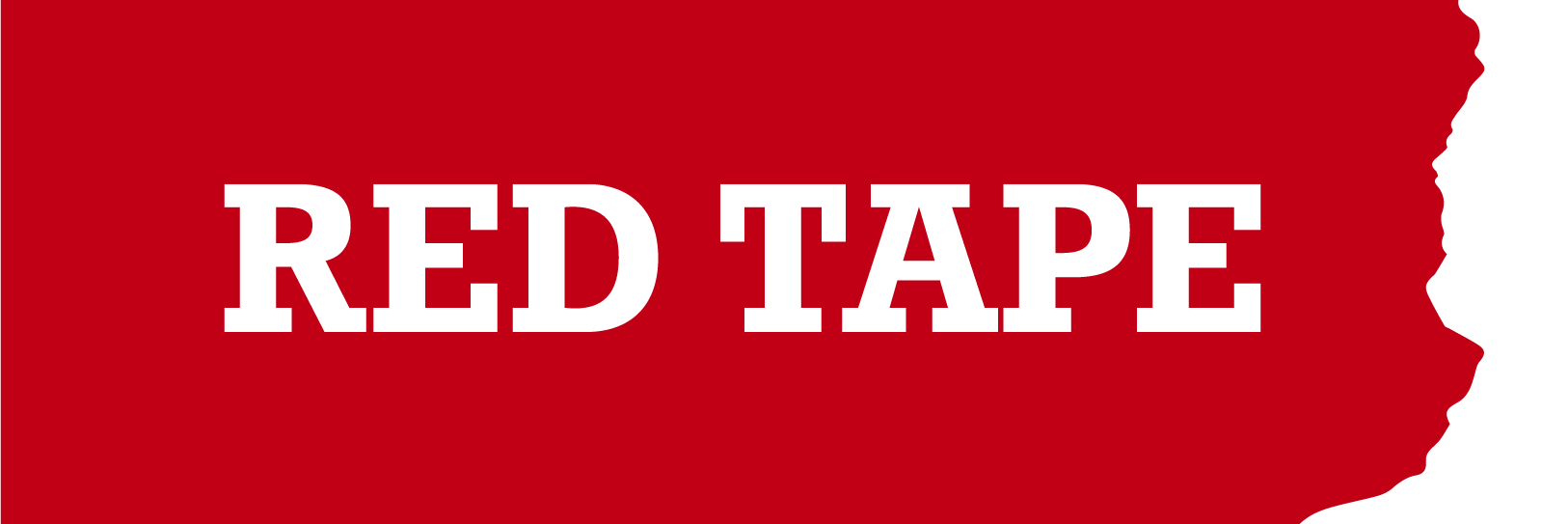

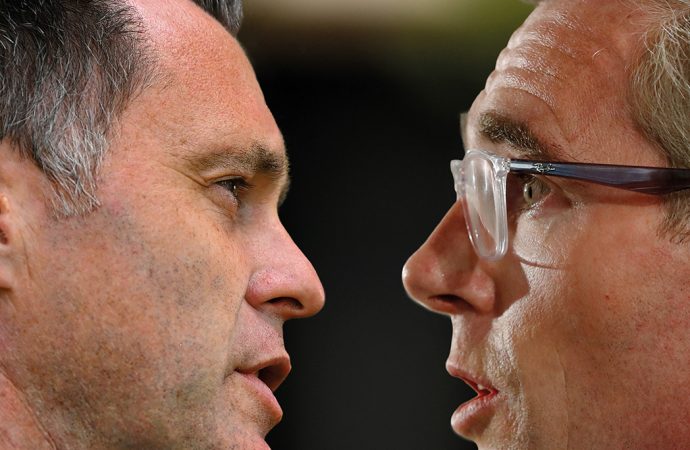
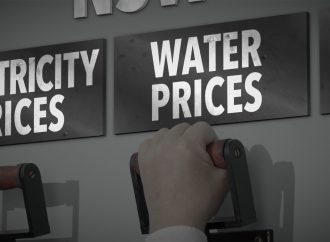

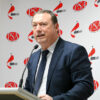


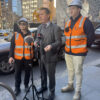




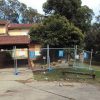
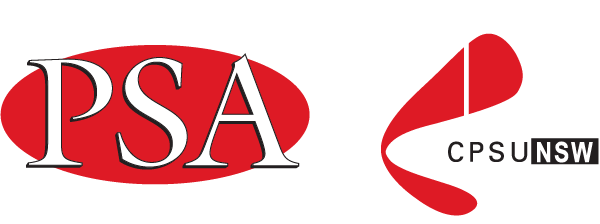
Leave a Comment
Your email address will not be published. Required fields are marked with *